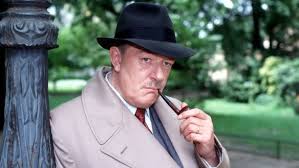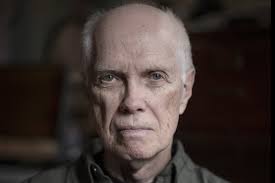
In reading essays in Robert A. Caro’s Working, I was struck by the unanticipated similarities between fiction, nonfiction, and yes, even poetry writing. Apparently Caro was, too, else why would he write this:
“The importance of a sense of place is commonly accepted in the world of fiction; I wish that were also true about biography and history, about nonfiction in general, in fact. The overall quality, the overall level, of writing is, I believe, just as important in the one as in the other.
“By ‘a sense of place,’ I mean helping the reader to visualize the physical setting in which a book’s action is occurring; to see it clearly enough, in sufficient detail, so that he feels as if he himself were present while the action is occurring. The action thereby becomes more vivid, more real, to him, and the point the author is trying to make about the action, the significance he wants the reader to grasp, is therefore deepened as well. Because biography should not be just a collection of facts. Its base, the base of all history, of course is the facts, it’s always the facts, and you have to do your best to get them, and get them right. But once you have gotten as many of them as possible, it’s also of real importance to enable the reader to see in his mind the places in which the book’s facts are located. If a reader can visualize them for himself, then he may be able to understand things without the writer having to explain them; seeing something for yourself always makes you understand it better.
“Another point. Since places evoke emotions in people, places inevitably evoked emotions in the biographer’s subject, his protagonist. Therefore, if a biographer describes accurately enough the setting in which an action took place, and if he has accurately enough presented the protagonist’s character, the reader will be helped to understand the emotions that the setting evoked in the protagonist, and will better understand the significance that the action held for him. If the place is important enough in the subject’s life—if he was raised in it, for example, or presided over it, or maneuvered within it—if the place played a significant role in shaping his feelings, drives and motivations, his self-confidence and his insecurities, then, by making the place real to the reader, the author will have deepened the reader’s understanding of the subject, will have made the reader not just understand but empathize with him, feel with him.”
To fully appreciate the importance of bringing place to life, you need only think of your favorite subject, your particular area of expertise: yourself. What places have mattered most to you? What do they say about you? How do they reflect your concerns, interests, and fears?
One such place, surely, is your childhood stomping grounds. They reappear with regularity in your dreams, sometimes even populated with people from present circumstances.
Or your place of employment. Work long enough at a place and it begins to attach itself to you. How do you function within it? How do you make it work for you?
Not to mention (but I’m about to) your home, its surrounding grounds, its inner rooms. Walk in anyone’s house and you’ll begin to divine his or her interests. Books on the shelves. Pictures on the walls. Furniture style, cleanliness or lack thereof, colors, items on shelves and countertops, music playing, food cooking or baking in the oven, etc. Together, they fashion a composite of you.
The genre of writing matters not. Character and place are intertwined echoes of each other. For writing purposes, that means lighting, temperature, objects in place, colors, actions occurring (or not). Place can be brought to life with tricks in the writer’s toolbox shared by all genre specialists: figurative language, rhetorical devices, action verbs, specific nouns, imagery, and so on.
Try it. Write about a place only, but with a character in mind. See how much you can flesh out the man or woman just by a setting important to him/her. You’ll see that Robert Caro, biographer, was on to something. More than he knew….









